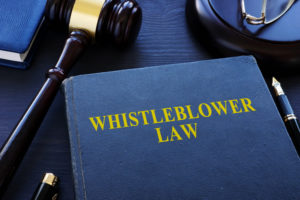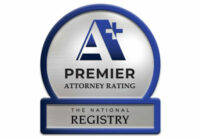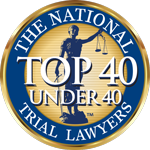Florida Whistleblower / Fraud Lawsuits
Qui Tam Lawsuits & Whistleblowers/Relators
 Each year, local, state, and federal governments are defrauded out of billions of dollars by intentional deceptive and dishonest employees, contractors, business people, and others, in order to obtain an unauthorized benefit. In 2021, the Department of Justice recovered over $5.6 billion in False Claim Act (FCA) settlements and judgements. This is the second largest is FCA history.
Each year, local, state, and federal governments are defrauded out of billions of dollars by intentional deceptive and dishonest employees, contractors, business people, and others, in order to obtain an unauthorized benefit. In 2021, the Department of Justice recovered over $5.6 billion in False Claim Act (FCA) settlements and judgements. This is the second largest is FCA history.
The government relies on a whistleblower (or relator) – a person, often an employee or someone within the organization where the wrongdoing is taking place, who reports fraud, abuse, corruption, dangers, unethical behaviors, etc. This individual discloses information about wrongdoing that otherwise would not be known and makes a significant, financial impact on the government, company shareholders, and taxpayers.
Types of Fraud
- Ambulance Fraud
- COVID-19-Related Fraud
- Education Fraud
- Healthcare Fraud
- Home Healthcare Fraud
- Hospital Fraud
- Kickbacks & Stark Fraud
- Local Government Fraud
- Mail Fraud
- Medicare/Medicaid Fraud
- Pharmaceutical Fraud
- Procurement Fraud
- Securities Fraud
- Tax Evasion/IRS Fraud
- Unbundling Fraud
- Unreasonable Cost of Goods/Services
- Upcoding Fraud
Reporting Fraud
There are three commonly used laws that whistleblower use to report fraud to the Government.
- False Claim Act – The False Claims Act (31 U.S.C. Sections 3729 through 3733) is the oldest qui tam law, originally enacted in 1863, and is the most effective antifraud law in the U.S. The FCA prohibits government contractors and other persons or companies who do business with the government from submitting false claims for payment, making false statements in connection with false claims, knowingly retaining or keeping any overpayments of government money, or conspiring to do any of the above. If a whistleblower knows about government fraud, under the FCA Act, he or she can file a lawsuit against the wrongdoer under seal. An investigation ensues where the Government takes over the lawsuit or allows the whistleblower to proceed on their own. If successful, a whistleblower will receive a share of any proceeds recovered in the lawsuit.
- Securities and Exchange Commission Whistleblower Law – The Securities and Exchange Commission (SEC) has its own whistleblower law at 15 U.S.C. § 78u-6. A whistleblower can report the business, company, or person committing securities fraud and earn a reward, if after an investigation, the information leads to fine or penalty. Then, a whistleblower is entitled to a share.
- Internal Revenue Service Whistleblower Law – The Internal Revenue Service (IRS) also has its own whistleblower law at 26 USC § 7623. When a whistleblower helps detect and prosecute tax fraud in an amount over $2 million, he or she can earn a reward. Whistleblowers report the information using IRS Form 211 and if that information leads to a recovery, then the whistleblower maybe entitled to a portion of the recovery as a reward.
Fraud Rewards
In most cases, a whistleblower who reports fraud can receive a reward of up to 15% to 30% of the funds recovered by the government.
Whistleblower Protections
A real concern for whistleblowers is potential retaliation, if they (employee, contractor, or agent) bring or report a qui tam claim against their employer. The FCA and the Fraud Enforcement and Recovery Act prohibits the employer from harassing or retaliating against the employee (fire, demote, suspend, reduce pay, deny bonuses, etc.) for attempting to uncover or report the fraud. If they retaliate, the relator may be entitled to reinstatement, back pay, two times the amount of back pay, litigation costs, and attorney’s fees.
Contact Us
Whistleblower laws and Qui Tam cases are often complicated. If you have concerns regarding fraud or any misconduct in a federal program, you should contact an experienced whistleblower attorney to ensure your rights and interest are protected. You can reach us by calling (561) 366-9099.











